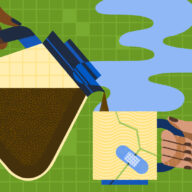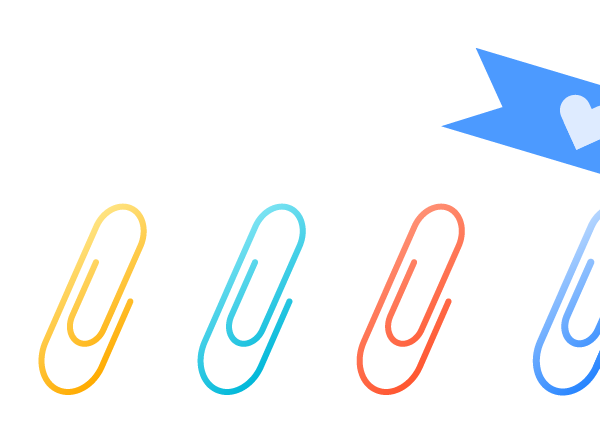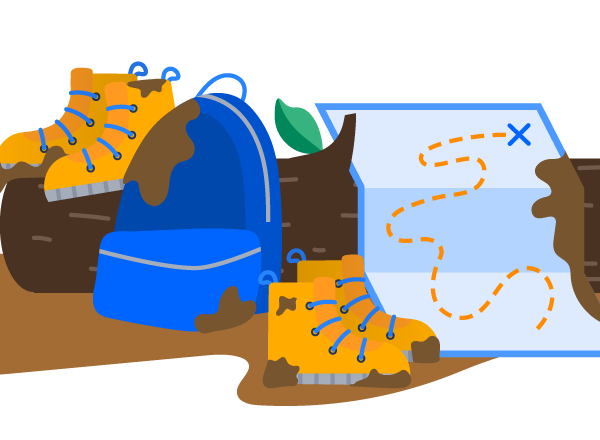By 2022, the skills employees will need to thrive will include creativity, trustworthiness, emotional intelligence, and leadership, according to the World Economic Forum’s Future of Jobs Report 2018.
Intelligence matters. But recently, business leaders have begun to place more emphasis on “soft skills” – you know, those intangible qualities that make the difference between being a dear or dreary coworker.
While it may seem counter-intuitive, these more human traits are especially important in data-driven fields like technology. In fact, Google has screened potential employees for their “learning ability” – the ability to solve problems on the fly – for years.
The intangible qualities that help you work and interact effectively with the people around you may be even better predictors of success than IQ, according to experts. Here’s why: measuring up in soft skills improves teamwork, helps you be a better leader, and helps you work more efficiently.
Some might even net you a bigger paycheck.
EQ: Emotional intelligence quotient
The ability to monitor, understand, and act upon emotions.
You may have heard of this one; it’s been around since the 1990s. Psychologists Peter Salovey (the current President of Yale University) and John D. Mayer (now at the University of New Hampshire) coined the term ‘emotional intelligence’ and describe it as “a form of social intelligence that involves the ability to monitor one’s own and others’ feelings and emotions, to discriminate among them, and to use this information to guide one’s thinking and action.”
In simple terms, people with a high EQ are empathetic and authentic.
They have a flexible communication style and can navigate conflict, says Justin Bariso, author of EQ Applied: The Real World Guide to Emotional Intelligence. Studies show EQ improves teamwork and helps people develop strong and positive relationships with co-workers.
“When team members practice empathy, they set the example in not attacking others or making them feel stupid for taking risks, sharing ideas, or doing work a certain way,” says Bariso. “At the same time, they know how to communicate critical feedback in a way that’s constructive. All of this works together to produce a safe environment where people can do their best work.”
EQ has become so important that a Career Builder Survey found 59 percent of U.S. hiring managers and human resources professionals say they wouldn’t hire someone who has a high IQ but low EQ. One study published in the Journal of Vocational Behavior found having a high EQ can even help you earn more.
There are several different self-tests you can take to determine your EQ, but Bariso says the answer to the following questions can give you a ballpark idea. “In addition to asking them to yourself, you should ask them to someone you trust – who you know will tell you the truth,” says Bariso. Then, use the answers to help you identify areas for growth.
- How does my current mood affect my thoughts and decision-making?
- Am I open to other perspectives?
- Do I tend to focus on the positive or negative traits of others?
- Do I generally give others the benefit of the doubt?
- Do I find it difficult to admit when I’m wrong?
If in answering these questions you discover that, hey, maybe you could be a liiiitle more open-minded, especially when it comes to others’ opinions and POVs, there’s good news: research proves that EQ is like a muscle – with the right training, you can improve it. And you don’t even need to go to the gym to do it.
How to build your Emotional intelligence quotient
- Pause. If you find yourself in an emotional moment, wait for a few minutes (or even seconds) before you speak or react. It’s easier said than done, but with practice, it can be a life-changer.
- Be mindful of your emotions. The next time you’re having a particularly good or bad day, pay attention to how your mood is impacting your communication with others and your productivity. If you notice that you’re having negative thoughts (“I’ll never finish this project on time!”), try to replace them with positive ones (“Deep breaths – I haven’t missed a deadline yet. Maybe I can ask Susan for some help.”). This will help put you in a better frame of mind and enable you to make more rational decisions.
- Take responsibility for your emotions. You might get pissed that someone cut you off in a meeting, but they didn’t make you mad. As the old therapy axiom (and Oprah!) says: you can’t control other people, only your reactions to them.
DQ: Decency quotient
Understanding you are part of a larger picture, interacting with others with respect and humility. Considering someone else’s point of view and taking their needs into account.
Bill Boulding, Dean of Duke’s Fuqua School of Business, believes the best leaders have a triad of Qs; the triple-threat of IQ, EQ, and DQ – the decency quotient.
“A leader with a high DQ understands that leadership isn’t about taking from other people but serving other people,” says Boulding. “That means thinking about how they can do things that help people fulfill their human potential so they can be more successful.”
Making sure everyone feels positive, respected, and valued develops a sense of trust and gets people to participate more fully. When that happens, everyone benefits from their talents. When the potential of an individual is unlocked, the entire team thrives, says Boulding. “A great team always beats a great individual.”
Humility is a big part of DQ. “A decent person knows they’re not perfect and can benefit from the people around them if they can get them to do their best,” says Boulding. They also don’t take themselves too seriously. Someone with a high DQ is usually willing to poke fun at themselves.
By the time you reach adulthood, the way you look at the world is pretty set, says Boulding. That’s why he stresses assessing someone’s DQ as part of the hiring process. To figure out how much DQ applicants to Duke’s graduate business program have (there isn’t a test for it), Boulding and his team look for candidates who can explain how they exemplify values like supportive ambition (aka, the ‘my success is your success’ principal), look for letters of recommendation that call out humility as well as smarts, and weed out people who spend the interview just trying to make themselves look good, versus having an honest and transparent conversation.
Companies can employ similar measures. “When it comes to talent, people think about what they can assess and measure, like IQ. But my view is that organizations should spend more time selecting on the basis of DQ,” says Boulding.
As an adult, it’s hard to change your DQ dramatically, but small increases are possible. Like a muscle, DQ can atrophy if you don’t use it, so start flexing.
How to build your decency quotient
- Surround yourself with a diverse team. People have a natural instinct to surround themselves with people like themselves, says Boulding. That doesn’t drive innovation and create value. What does: pulling together people with different ideas but a common purpose.
- Confront your prejudices. Once you’ve built a diverse team, your instinct will be to object to views that differ from your own. Check that urge. “Ask yourself: Why does this anger or annoy me?”
- Express gratitude. Thank a colleague for pitching in on that big project. Appreciate how the work you do helps other people get their own job done. Gratitude and humility are mutually reinforcing. Acknowledging the good around us can make us less focused on ourselves, and more in tune with others.
CQ: Curiosity quotient
A sense of wonder about the world that provokes a person to continually learn new things, innovate, and adapt to changes in their environment.
Curiosity may have claimed the life of many a feline, but it’s one of the most important traits humans can develop. The Curiosity Quotient was first used by journalist Tom Friedman in a 2013 New York Times OpEd. Friedman’s thesis: with new technologies coming out rapid-fire, people have to learn and adapt to be marketable. “The winners won’t just be those with more I.Q. It will also be those with more P.Q. (passion quotient) and C.Q. (curiosity quotient) to leverage all the new digital tools to not just find a job, but to invent one or reinvent one. And to not just learn but to relearn for a lifetime,” he wrote.
Six years on, Friedman’s essay is more apt than ever. A report compiled by the McKinsey Global Institute predicts that by 2030, as many as 800 million jobs could be lost worldwide to automation. That may be why that Future of Jobs report mentioned above states that by 2020, on average, more than one-third of the desired core skill sets of most occupations will be the one that robots and forms of artificial intelligence cannot easily replicate. Why? So far, robots can’t be curious (score one, humans!).
Atlassian CTO, Archana Rao, has expressed that CQ is more important than knowing everything about technology when it comes to accelerating career growth. Science proves she’s right. Curiosity has been linked to greater learning, engagement, and performance at work. Being curious about new technologies or new ways of doing things can help you adapt to new job challenges, and asking questions can yield information that helps you solve challenging problems.
Curiosity is critical because it primes the brain for learning. It’s much easier to learn not-so-interesting things when we’re feeling curious because when you are curious, the limbic reward system of the brain actually illuminates. (So the next time you need to learn something dry, spending ten minutes reading a book about your favorite hobby first might help!)
Think back to when you were a kid and curious about everything: why the sky was blue, how the TV worked, why adults seemed so grumpy all the time. Do you still have that level of wonder about the world? Do you pick up new books on fresh subjects, try every new food trend, and occasionally choose an out-of-your-normal genre film on Netflix? If you’ve lost a bit of that kid within, your CQ might be on the lower side.
How to build your curiosity quotient
- Ask, don’t Google. Next time you come across a work question that stumps you, ask a team member in the know instead of firing up your search engine.
- Take a new route home from work. Notice the sights, sounds, and smells around you.
- Be willing to be wrong. If you’re in a conversation with someone else and they see a solution that’s different to what seems obvious to you, be open to listening to their rationale. Ask questions about why or how they reached their opinion. Even if they don’t sway you, you’ll probably learn something new.
AQ: Adversity quotient
The gauge of how a person responds to difficult situations.
When something goes wrong – really wrong – at work, how do you react? Do you run around like a headless chicken, grasping at every available straw to find a solution? Or do you keep your wits about you, figure out a fix, and learn something that will help get you out of the next pickle?
Your answer reveals a lot about your AQ, or adversity quotient, a measure developed by Dr. Paul Stoltz in his book Adversity Quotient: Turning Obstacles Into Opportunities, that tests how well people can turn bad situations around. “It is the gauge – the current global gold standard – of how a person responds to the tough stuff,” says Soltz.
Some classic high AQ tendencies include: greater optimism, the ability to solve problems and innovate, agility, and accountability.
“Everyone faces ever-greater uncertainty, ambiguity, volatility, complexity, pace, demands, intensity. Equipping ourselves to thrive in this kind of weather is what AQ is all about,” says Soltz. New problems crop up daily and unexpectedly – team members come and go, bottlenecks clog workflow, deadlines pile up – and having the grit not to buckle under these obstacles can make the difference between successful individuals and teams, and those who buckle under pressure.
People with high AQ get fired up by the kind of challenges that may crush others, says Soltz. “People trust you more deeply, follow you more loyally, because you’re at your best, even in, or especially in the worst moments.”
Stoltz’s AQ Profile may be the best formal test for AQ. It measures things like how much you think you can influence setbacks, how much different stressful situations affect you, and how long you let the effects of adverse situations tend to linger in your life. But Soltz says a good checkpoint is to ask three to five people who know you best: “If ten is the person who is the absolute most and one is the least effective when the stuff hits the fan, being brutally honest, where would you score me?”
How to build your adversity quotient
Like EQ, AQ can be grown. First, says Soltz, you have to be aware of how you react to adversity. He suggests paying attention to your CORE.
C: Control. To what extent do you perceive you can influence whatever happens next? And focus on those facets you could potentially influence.
O: Ownership. Where and how can you step up to make the most immediate, positive difference?
R: Reach. What can you do to minimize any potential fallout, or downside? How can you maximize the potential upside of this adversity?
E: Endurance. How can you get past this as quickly as possible?
OQ: Open quotient
A team-level measure of how collaborative and connected your team is.
Yep, we’re throwing our hat into the acronym-filled ring with a Q of our own: the Open quotient or OQ. The Open quotient is a team-level measure of how collaborative and connected your team is. Open work is a mindset, a culture, and a set of practices that moves work forward. And at Atlassian we believe it is the secret of truly happy and effective teams.
Earlier this year we surveyed 1,100 U.S. workers in engineering, IT, marketing, legal, HR, finance, and design about their organizations. The common thread that we discovered about the highest-achieving teams? An open work style.
Being open to new ways of thinking, having the access to the information you need, and getting direct feedback were all tied to better teamwork, and more success.
The opposite is true, too: hiding difficult news from employees actually demotivates them. Sadly, this seems the norm. Per a 2015 study 81 percent of workers believe that corporate transparency is more important than any workplace perk, but only 15 percent are very satisfied with the level of communication within their offices.
Grab a teammate and test your team’s Open Quotient with this online quiz.
How to build your open quotient
- Listen to others’ points of view. And be willing to share your POV with your team.
- Be willing to f*** things up in front of others.
- Get to know your teammates. Grab a drink or coffee and ask them about their weekend. The only catch: no shop talk allowed.





 )
) 







































